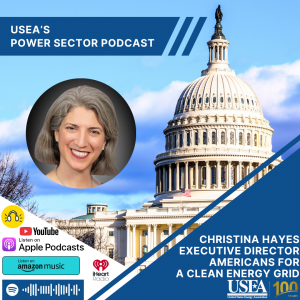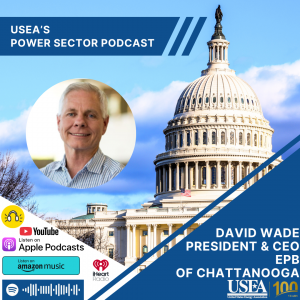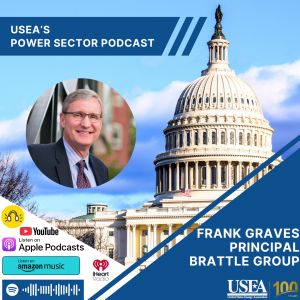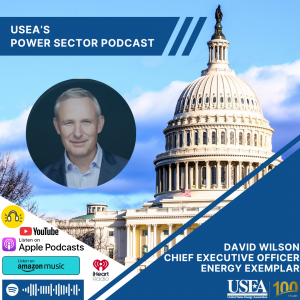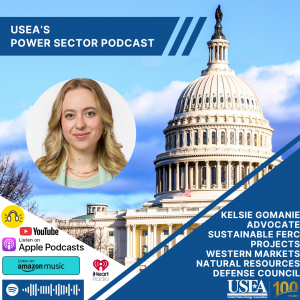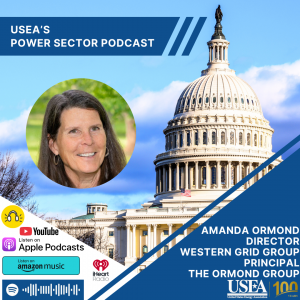November 11th, 2025
In today’s USEA Power Sector Podcast, Americans for a Clean Energy Grid Executive Director Christina Hayes answered questions by journalist Herman K. Trabish about DOE’s just-finalized $1.6 billion loan guarantee to American Electric Power for transmission upgrades and about why a “macrogrid” is the big solution to U.S. transmission needs.
November 6th, 2025
In today’s USEA Power Sector Podcast, David Wade, President and CEO of the Electric Power Board of Chattanooga, or EPB, answered questions by journalist Herman K. Trabish about quantum computing and why EPB is working with Oak Ridge National Laboratory, NVIDIA, and IonQ to further the potential of quantum computing to optimize power sector electricity delivery.
November 4th, 2025
In today’s USEA Power Sector Podcast, Frank Graves, Principal at the research and analysis consultant Brattle Group answered questions by journalist Herman K. Trabish about critical insights in Brattle’s new paper, “Wildfire Financial Risks for Utilities: Proactive Management, Regulatory Policy and Strategy Recommendations.”
October 31st, 2025
In today’s USEA Power Sector Podcast, David Wilson, CEO at software provider Energy Exemplar answered questions by journalist Herman K.
October 28th, 2025
In today’s USEA Power Sector Podcast, James Dobchuk, President and Chief Commercial Officer for Global Laser Enrichment, answered questions by journalist Herman K. Trabish about his company’s just announced break-through in producing low enriched uranium, which can replace supplies currently obtained from Russia and will be urgently needed for the planned nuclear energy industry scale-up.
October 23rd, 2025
In today’s USEA Power Sector Podcast, Edward McGinnis, CEO of next generation nuclear technology startup Curio, answered questions by journalist Herman K. Trabish about how second era nuclear technologies hold the promise of minimizing nuclear power’s traditional water use, spent fuel, and cost challenges to help meet the world’s rapidly growing electricity demand.
October 21st, 2025
In today’s USEA Power Sector Podcast, Ann Collier, Senior Manager, Emerging Technologies with the Smart Electric Power Alliance, answered questions by journalist Herman K. Trabish about the new DELTa database, developed by SEPA and the North Carolina Clean Energy Technology Center, to catalogue and characterize the many quickly emerging rate designs for new large loads like AI data centers.
October 17th, 2025
In today’s USEA Power Sector Podcast, Natural Resources Defense Council Sustainable FERC Project’s Western Markets Advocate Kelsie Gomanie answered questions by journalist Herman K. Trabish about how the passage of California’s Assembly Bill 825 represents a transformative milepost in the coming emergence of Western electricity market regionalization.
October 14th, 2025
In today’s USEA Power Sector Podcast, Shelley Copsey, Co-founder, CEO, and Director of the UK’s FYLD, answered questions by journalist Herman K. Trabish about how AI-driven software services can help electric utilities be more reliable, resilient, and affordable.
October 10th, 2025
In today’s USEA Power Sector Podcast, Amanda Ormond, Director of the Western Grid Group and Principal with the Ormond Group answered questions by journalist Herman K. Trabish about how the passage last Saturday of California’s Assembly Bill 825 represents a transformative milepost in the coming emergence of Western electricity market regionalization.
Pages

